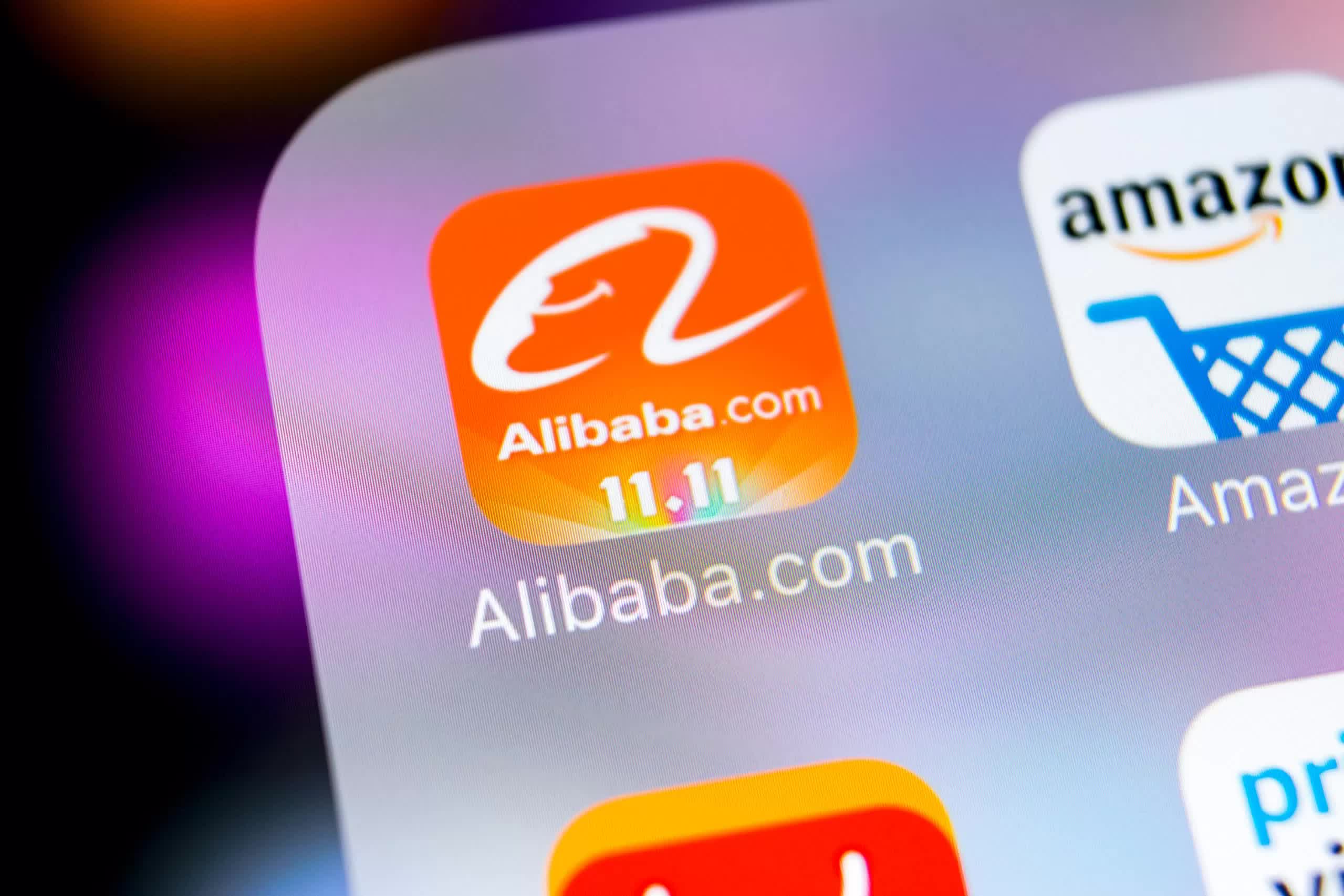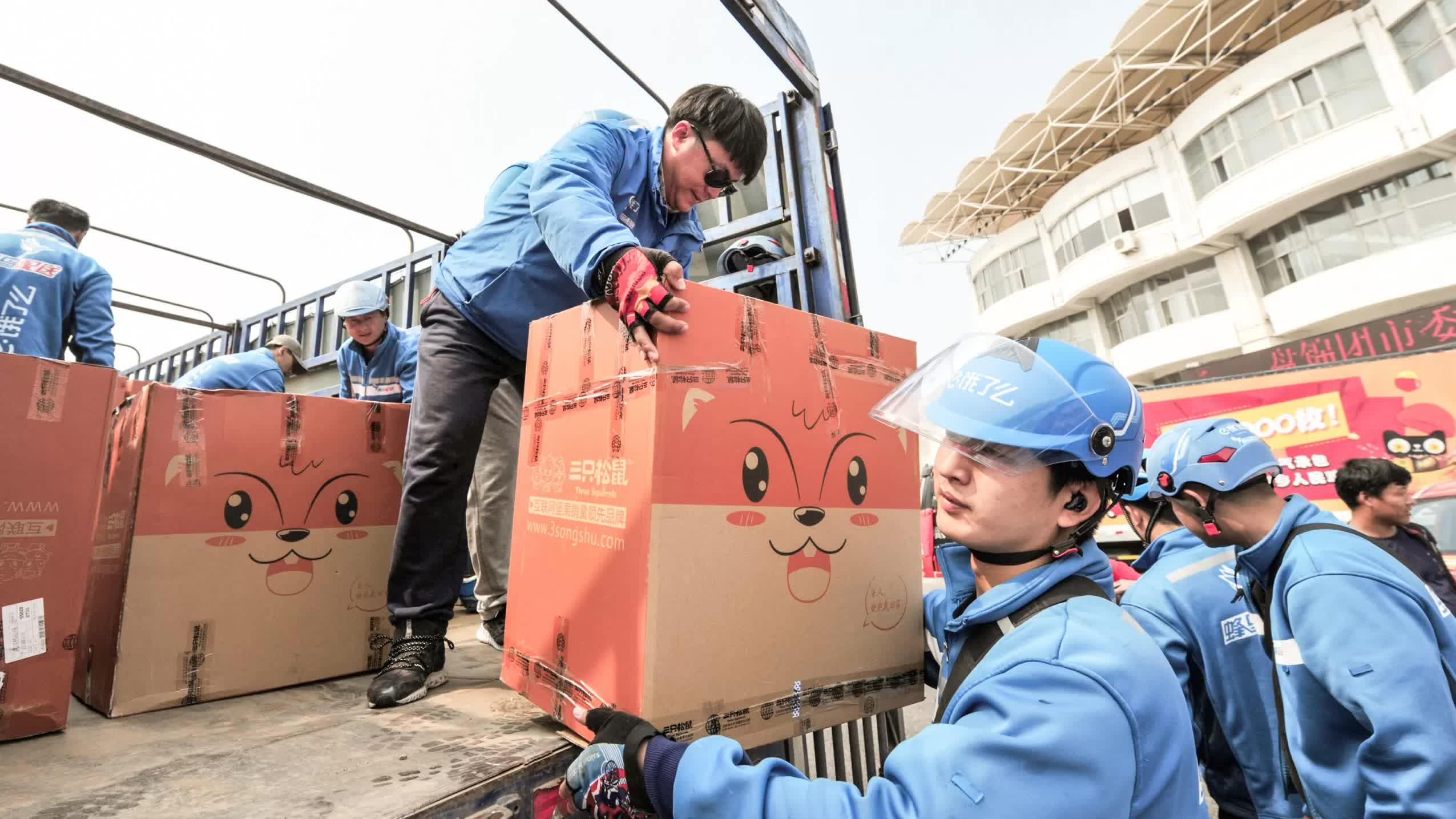and Ant Group for "picking one from two" strategy
China's competition landscape is changing
China's competition landscape is changing
By Adrian Potoroaca on December 25, 2020

The big picture: The future looked bright ahead for Alibaba only months ago, with its share price climbing steadily amid the pandemic. However, in a first for China, the State Administration for Market Regulation has started an antitrust investigation into Alibaba and sister company Ant Group, signaling an end to the hands-on approach typically practiced by the Chinese government.
The Chinese government announced it has started an antitrust investigation into Alibaba, the country's largest tech company, which extends to sister company of Ant Group that was recently targeting an IPO at a valuation of $37 billion.
Last month, regulators suspended Ant Group's initial public offering just two days before shares were to begin trading in Shanghai and Hong Kong, in a move that is part of an ongoing crackdown on anticompetitive behavior in the country's booming tech sector.
Shares in Alibaba fell more than 8 percent to their lowest level since July. Even its largest competitors -- JD.com and Meituan -- were affected by the news.

While the full scope of the investigation is not yet clear, China's State Administration for Market Regulation (SAMR) said it's looking into Alibaba's alleged practice of forcing merchants to sign exclusivity contracts ("picking one from two"), which has generated a lot of complaints and lawsuits over the years. Regulators are meeting with Ant Group in the coming days to discuss the implementation of proper financial supervision and protections for consumers.
Both Alibaba and Ant Group said they would "comply with all regulatory requirements," and reassured investors that there's been no impact on normal day to day operations. However, if the two companies are found to be guilty of monopolistic behavior, they could be fined up to 10 percent of their annual revenue.
State-run local paper People's Daily wrote in an editorial that the investigation "is an important step in strengthening antimonopoly oversight in the internet sphere. [...] This will be beneficial to regulating an orderly sector and promoting the long-term healthy development of platforms."
Last month, the Chinese government revealed the first draft of new antitrust legislation that came as a direct response to Alibaba and Ant Group founder Jack Ma, who made a speech in Shanghai where he criticized the country's e-commerce and banking regulations.
Foreign companies like Google also face antitrust investigations, but SAMR is currently focusing on China's largest 27 e-commerce companies, including Alibaba, JD, Meituan, and Pinduoduo.

The big picture: The future looked bright ahead for Alibaba only months ago, with its share price climbing steadily amid the pandemic. However, in a first for China, the State Administration for Market Regulation has started an antitrust investigation into Alibaba and sister company Ant Group, signaling an end to the hands-on approach typically practiced by the Chinese government.
The Chinese government announced it has started an antitrust investigation into Alibaba, the country's largest tech company, which extends to sister company of Ant Group that was recently targeting an IPO at a valuation of $37 billion.
Last month, regulators suspended Ant Group's initial public offering just two days before shares were to begin trading in Shanghai and Hong Kong, in a move that is part of an ongoing crackdown on anticompetitive behavior in the country's booming tech sector.
Shares in Alibaba fell more than 8 percent to their lowest level since July. Even its largest competitors -- JD.com and Meituan -- were affected by the news.

While the full scope of the investigation is not yet clear, China's State Administration for Market Regulation (SAMR) said it's looking into Alibaba's alleged practice of forcing merchants to sign exclusivity contracts ("picking one from two"), which has generated a lot of complaints and lawsuits over the years. Regulators are meeting with Ant Group in the coming days to discuss the implementation of proper financial supervision and protections for consumers.
Both Alibaba and Ant Group said they would "comply with all regulatory requirements," and reassured investors that there's been no impact on normal day to day operations. However, if the two companies are found to be guilty of monopolistic behavior, they could be fined up to 10 percent of their annual revenue.
State-run local paper People's Daily wrote in an editorial that the investigation "is an important step in strengthening antimonopoly oversight in the internet sphere. [...] This will be beneficial to regulating an orderly sector and promoting the long-term healthy development of platforms."
Last month, the Chinese government revealed the first draft of new antitrust legislation that came as a direct response to Alibaba and Ant Group founder Jack Ma, who made a speech in Shanghai where he criticized the country's e-commerce and banking regulations.
Foreign companies like Google also face antitrust investigations, but SAMR is currently focusing on China's largest 27 e-commerce companies, including Alibaba, JD, Meituan, and Pinduoduo.
No comments:
Post a Comment